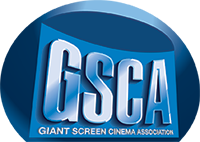 From the perspective of the audience, research plays little to no role in whether or not they like a film. Impact in that case is measured in terms of how many people bought a ticket to see the film. But from the perspective of film funders, impact is measured in terms of both the number of people who buy a ticket (the reach of the film) in combination with the effect that a film has on that audience—whether it be influencing behaviors, encouraging lifelong learning or some similar response to the film that makes a change in the audience’s outlook, knowledge or skill set.
From the perspective of the audience, research plays little to no role in whether or not they like a film. Impact in that case is measured in terms of how many people bought a ticket to see the film. But from the perspective of film funders, impact is measured in terms of both the number of people who buy a ticket (the reach of the film) in combination with the effect that a film has on that audience—whether it be influencing behaviors, encouraging lifelong learning or some similar response to the film that makes a change in the audience’s outlook, knowledge or skill set.
But like films, doing research on giant screen that address funders’ questions takes time and money. As it is not always possible to find the two, we must look to research that complements the industry in order to draw conclusions about the impact of the films. In 2015, Price, Lee, Kasal and Aguilera published the article “Comparing Short-and Long-Term Learning Effects between Stereoscopic and Two-Dimensional Film at a Planetarium.” The authors kindly allowed the article to be available to GSCA members.
The authors created a seven-minute film about the Milky Way to examine short- and long-term (6 months) learning. The paper points out how research can help guide the construction of stereoscopic (3D) films, noting, among other factors, that it takes time for the viewer to adjust to a 3D presentation, so it is best to ease the viewer into the entertaining or striking 3D shots. The authors also showed that although there was no difference in learning immediately after watching the film, there was better long-term recall after watching the 3D film.
The work by Price et al. describes the role that research can play in creating, in this case, a 3D film that incorporated current research on cognition for improved outcomes. We can extrapolate their work to giant screen films by understanding that research has a place to improve the cognitive response to a film. And importantly, it shows that it is possible to incorporate research programs into the museum experience, with the potential to enhance future programs and exhibits at the museum.
Members can access the research here with their member login: Industry Research
Mary Nucci is a Research Assistant Professor at Rutgers, the State University of NJ. Her work focuses on issues relating to the communication and public understanding of science. She has served as a Board Member for GSCA, as chair of the Lifelong Learning Committee, and as chair of the GSCA Research Task Force.
References:
Price, C. A., Lee, H. S., Subbarao, M., Kasal, E., & Aguilera, J. (2015). Comparing Short-and Long-Term Learning Effects between Stereoscopic and Two-Dimensional Film at a Planetarium. Science Education, 99(6), 1118-1142.
